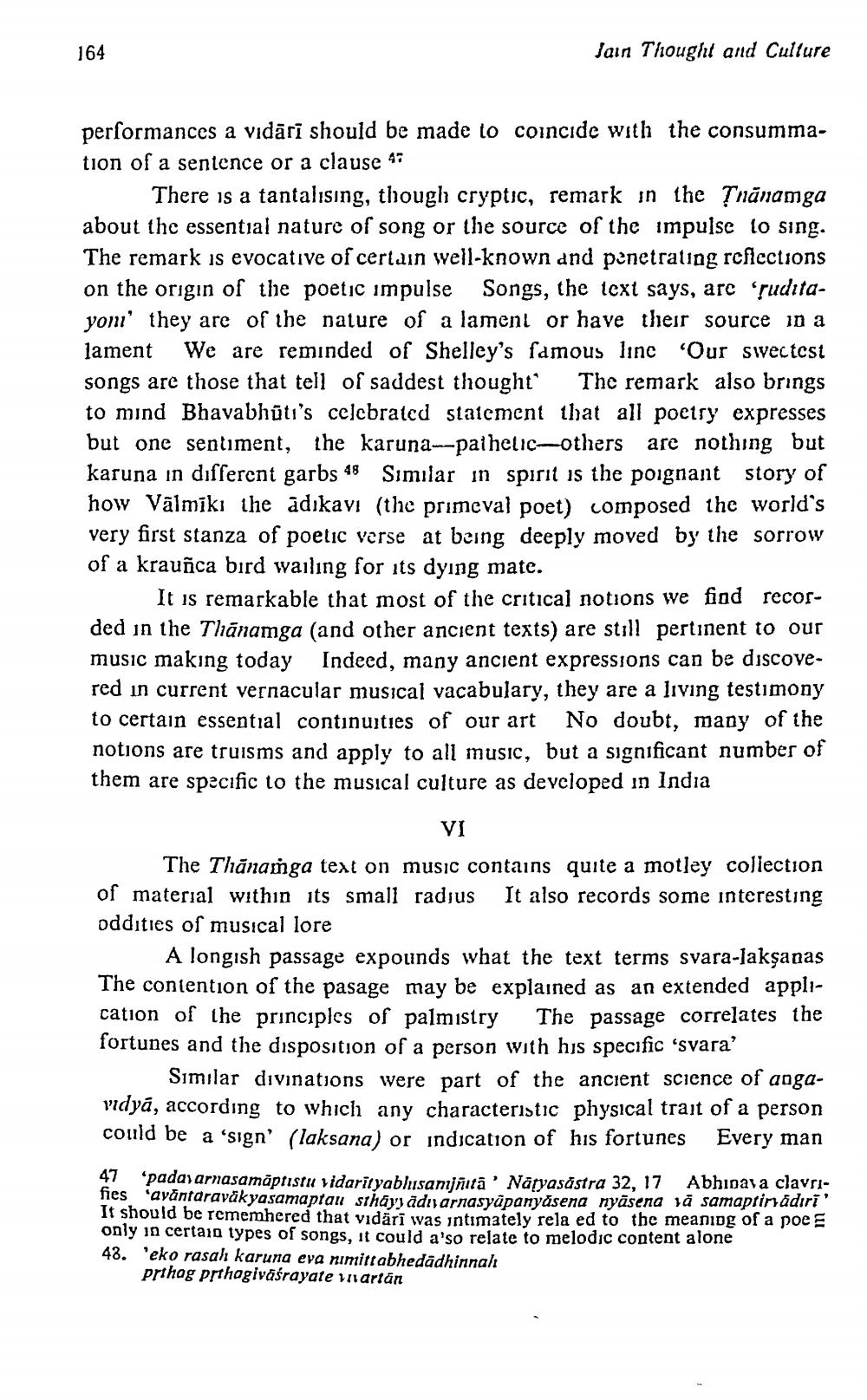________________
164
Jain Thought and Culture
performances a vidāri should be made to coincide with the consummation of a sentence or a clause 47
There is a tantalısıng, though cryptic, remark in the Țnānamga about the essential nature of song or the source of the impulse lo sing. The remark is evocative of certain well-known and penetraung reflections on the origin of the poetic impulse Songs, the text says, arc 'suditayom' they are of the nature of a lament or have their source in a lament We are reminded of Shelley's famous line 'Our swectest songs are those that tell of saddest thought The remark also brings to mind Bhavabhūti's celebrated statement that all poetry expresses but one sentiment, the karunam-pathetic-others are nothing but karuna in different garbs 48 Similar in spirit is the poignant story of how Vālmīki the adıkavi (the primeval poet) composed the world's very first stanza of poetic verse at being deeply moved by the sorrow of a kraunca bird wailing for its dying mate.
It is remarkable that most of the critical notions we find recorded in the Thanamga (and other ancient texts) are still pertinent to our music making today Indeed, many ancient expressions can be discovered in current vernacular musical vacabulary, they are a living testimony to certain essential continuities of our art No doubt, many of the notions are truisms and apply to all music, but a significant number of them are specific to the musical culture as developed in India
VI
The Thānamga text on music contains quite a motley collection of material within its small radius It also records some interesting oddities of musical lore
A longish passage expounds what the text terms svara-lakşanas The contention of the pasage may be explained as an extended application of the principles of palmistry The passage correlates the fortunes and the disposition of a person with his specific 'svara'
Similar divinations were part of the ancient science of angavidyā, according to which any characteristic physical trait of a person could be a 'sign' (laksana) or indication of his fortunes Every man
47 pada) arnasamāptistu vidarityablusamiñita' Nāryasastra 32, 17 Abhinava clavrines ayantaraväk yasamaptausthavi ādu arnasyāpanyåsena nyāsena ja samapiiriadiri It should be rememhered that vidari was intimately rela ed to the meaning of a poes only in certain types of songs, it could also relate to melodic content alone 43. 'eko rasah karuna eva nimittabhedādhinnah
prihog prthogiväśrayate varian




